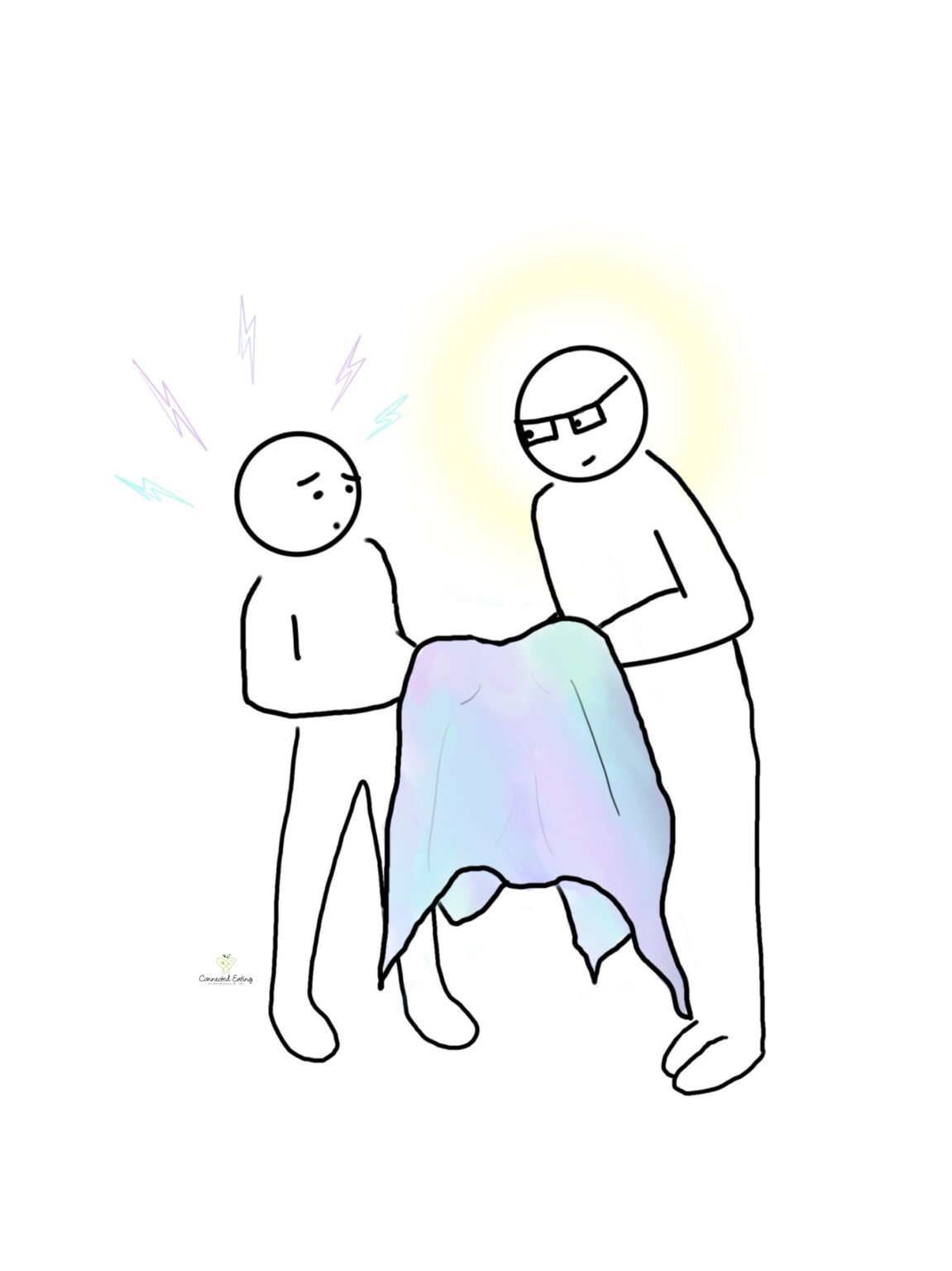For Professionals
Since 2001, Connected Eating has been regarded as a leader in eating disorders and has been training the next generation of clinicians.
For Professionals
Since 2001, Connected Eating has been regarded as a leader in eating disorders and has been training the next generation of clinicians.

Training:
Trauma-informed care for eating disorders
In traditional eating disorders treatment, the first intervention is usually focused on urgent nutritional rehabilitation given the immediate physical danger to the client. Dietitians are given the responsibility to make behavioural changes without consideration of the psychological readiness or impact on the client.
Therapists often focus on the psychological needs without prioritizing physical safety. Both are essential. Traditional eating disorders treatment reinforces the clinician-client power dynamic which potentially re-traumatizes the client, further disempowering them, rather than offering strength and hope. Without a trauma-informed approach, clinicians can inadvertently sabotage therapeutic alliance and cause iatrogenic harm.
During this 4-part training, Susan integrates her dietetic and psychotherapy expertise to teach a trauma-informed stage-based culturally competent treatment of eating disorders that will revolutionize your practice. The course includes an understanding of the polyvagal theory, window of tolerance and how to use our nervous system to help regulate our clients’.
Using case studies, participants will learn how clients can be included in their treatment plans, enhancing connection through prioritizing collaboration, safety, trustworthiness, choice and empowerment.
Connect with us to learn more >
Supervision for Clinicians
Connected Eating offers supervision, practicum and mentorship opportunities in both hospital and clinical settings for dietitians, occupational therapists and social workers in training. We’re also a teaching site for University of Toronto, where Masters-level graduate interns can complete practicum as a crucial component of their training.
Our unique programs provide supervision to qualified professionals and clinicians-to-be in a safe environment so that you can get answers to your questions or insight when you don’t know where to turn. Eating disorders is a unique area that demands attention to both physical and emotional needs in an ethical way. Without expert guidance, clinicians can inadvertently do harm. We provide supervision across Canada and internationally.
Susan is a certified iaedp supervisor so if you’re working towards the prestigious iaedp Certified Eating Disorders Specialist certification, these supervision hours will count towards your requirements.

Individual Supervision
Providing 1:1 supervision or consultation, you will get undivided attention about your own clients so that you can confidently provide them with expert care. You’ll get much-needed support, guidance and treatment plans for your clients.
Group Supervision
Together with a seasoned eating disorders expert as your supervisor and four matched colleagues, you’ll be a part of a cosy community where you’ll be able to review your clients, receive feedback, and direction on how to navigate challenges, including medical and ethical concerns.
We offer three options for your supervision based on your level of experience:
- Beginner Supervision – Designed for dietitians who are interested in exploring eating disorder care to see if it’s a good fit for their practice. Go deeper into eating disorder care and learn how to support clients with a wide range of needs. (hosted by Alessandra Magisano MHSc, RD)
- Intermediate Supervision – Ideal for dietitians who have less than 3 years of experience and want to deepen their knowledge about eating disorders. You have a grasp on basic skills, but want to learn more. (hosted by Susan Osher, CEDS-S, RD, RP)
Advanced Supervision – Designed for dietitians with 3+ years of experience supporting individuals and families. Advance your knowledge and skills, and learn how to deal with more complex cases. (hosted by Susan Osher, CEDS-S, RD, RP)
Visit our Speaking Engagements page to learn more >

Training for Professionals
Choose Susan Osher, Founder of Connected Eating, to develop and deliver a customised training session for your team.
These evidence-based, high-quality sessions are designed for clinicians and educators (including nutrition therapists, dietitians, doctors, psychiatrists, counsellors, psychotherapists, occupational therapists and social workers), who want to advance their knowledge about eating disorders.
What’s Included:
- Pre-session meeting to determine topic and agenda
- 60-90 minute session, either virtual or in-person
- Interactive features, as appropriate, such as group discussions or exercises
- Q&A session at the end of the session
- Additional materials and resources
- Evidence-based information using the latest research
Connect with us today to inquire >
Speaking Engagements
Looking for a speaker at your next event? Connected Eating’s Founder, Susan Osher, is available for presentations, keynote talks, speaking events and media appearances.
Visit our Speaking Engagements page to learn more >

What Others Say
I wanted to express that it was truly such a wonderful experience working with you at the clinic and I greatly appreciated your mentorship.
Mentee
As a former associate in Susan’s practice, I have had many opportunities to observe her clinical expertise, dedication to her clients, and passion for her job. With empathy and a sense of humour, Susan skillfully guides her clients towards better health, enabling them to successfully meet their nutritional goals.
Dina Cohen, MS RD, CEDS-S
Susan provides an excellent combination of warmth and direction that is so effective in supporting clients to step outside their comfort zones to do what they need to do to recover. Susan does an excellent job bringing together all the necessary people to support an individual’s recovery. She provides the leadership necessary to get everyone on the same page and working in the same direction towards recovery.